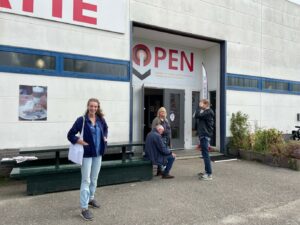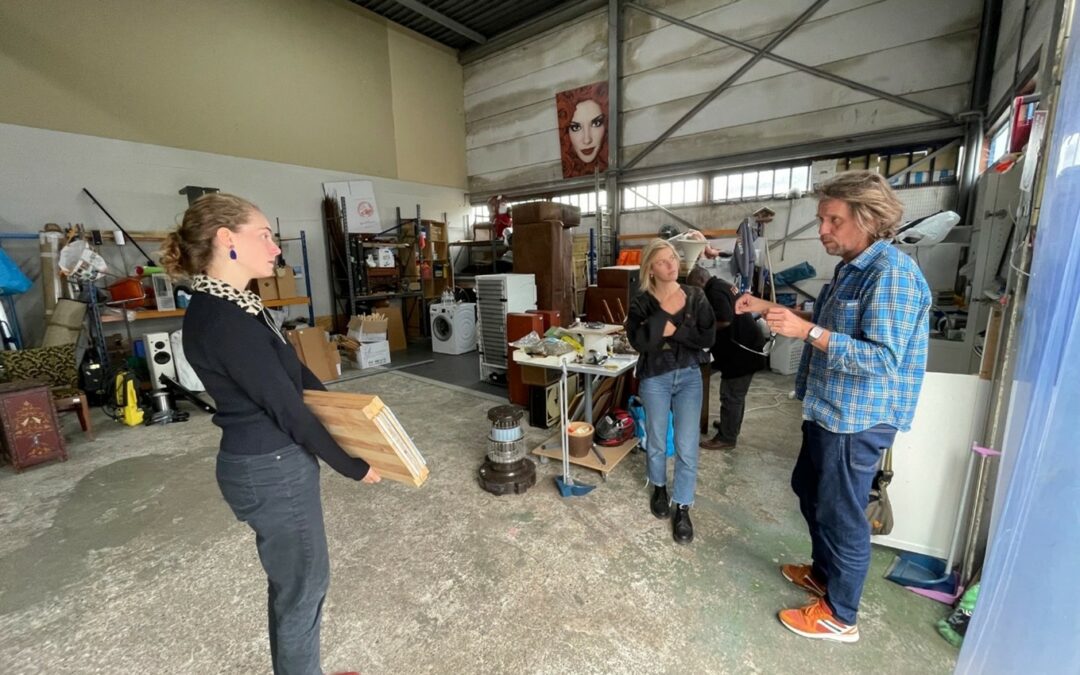ATELIER has the ambition to realise citizen-driven PEDs. Since the residents of Republica and Poppies are yet to move in in the coming years, ATELIER partners Waag and AUAS are now focusing on concerns and wishes of other residents in the area as well as getting to know local organisations and businesses that play a role in the energy transition. This way, we will build on existing energy, hopefully contribute to their efforts and align developments in ATELIER to local concerns.
Since 2015, Buiksloterham, where the PED will be realised, has been designated as a circular neighbourhood, functioning as a test site for new technologies in the energy transition and circular building developments. Read more. A local alliance of businesses and local residents’ organisations, Ronduit Buiksloterham, has been working on connecting residents and local initiatives with special attention for circularity and sustainability, one example being Philadelphia (see more here).
Last month, Waag’s team also got the opportunity to meet the manager and some customers of De Lokatie, a social enterprise and recycling business that is offering a workplace for people with poor job prospects. De Lokatie plays their role in recycling and upcycling by working together with a range of organisations from municipality to schools, makerspaces and mental health institutes. Although their main focus lies on offering meaningful daytime pursuits, paid jobs and experiences for currently 140 people, they have practically been working on circularity for the past 25 years. In 2019, De Lokatie recycled about 990 tons of household goods. This resulted in saving 791 tons of CO2 emissions. In the coming months, Waag will explore meaningful ways of cooperating with organisations such as De Lokatie in order to align efforts in the energy transition.
Since De Lokatie is one of the few existing shops in the Buiksloterham area and attracts a steady flow of customers, this place offered an opportunity to ask some local citizens about their perspectives on the energy transition and their energy usage. Some responses: “The energy transition, what does that mean?” “Something with green energy?”. “What actually is the difference between green and grey energy, it doesn’t change the electricity at my home”.
Some of our respondents were very aware of their energy usage: “I pay 40 euros a month and usually just put on an extra sweater”, and another said “I have become more aware of the energy I use so now I make sure to switch off lighting and water if I don’t use it”. Moreover, what struck our attention is that visitors of De Lokatie first of all associated energy with their personal feeling and body. “I think about doing sports, but also about electricity” and “I think about my own energy, how I feel”. Last but not least, the costs of energy are a matter of concern: “sustainable energy, solar energy… for all I know it is just getting more and more expensive”.

Julia (Waag) and visitors of De Lokatie (Credits: Waag)
